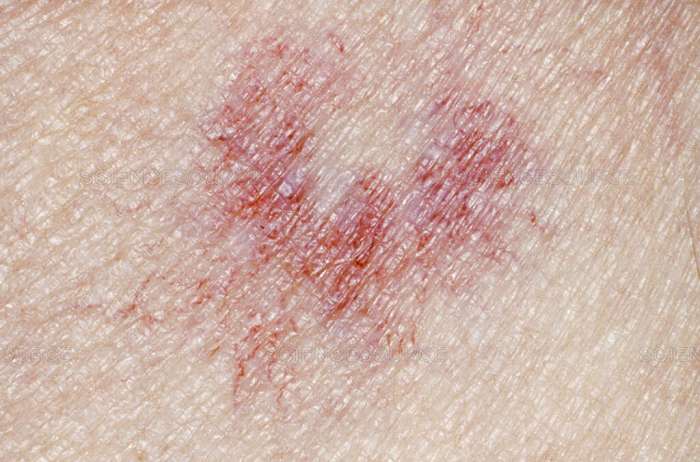10 natural reliefs to stop diarrhea quickly is your guide to fast, effective relief from this common ailment. We’ll explore various natural remedies, from the tried and true to the lesser-known, providing detailed information on how to use them safely and effectively. Understanding the causes and severity of diarrhea is crucial, and we’ll also cover when to seek medical attention.
Get ready to discover simple, natural ways to combat diarrhea and get back to feeling your best.
This comprehensive guide delves into the effectiveness and safety of each remedy, comparing their mechanisms of action and potential side effects. We’ll provide detailed descriptions, origins, and compositions of each natural relief, as well as clear instructions on preparation, dosage, and storage. This information is designed to help you make informed decisions about your health and well-being.
Introduction to Diarrhea Relief

Diarrhea is a common digestive issue characterized by loose, watery stools, often accompanied by abdominal cramps, nausea, and fever. It’s typically caused by viral or bacterial infections, food poisoning, or certain medications. While occasional diarrhea is usually harmless and resolves on its own, persistent or severe cases can lead to dehydration and other health complications.Seeking medical attention is crucial if diarrhea is severe, lasts longer than a few days, or is accompanied by high fever, bloody stools, or signs of dehydration (such as decreased urination, dizziness, or extreme thirst).
Natural remedies can offer temporary relief from mild to moderate diarrhea, but they should never replace professional medical advice. The general principle behind these remedies is to replenish lost fluids, soothe the digestive system, and promote healthy gut flora. This article will explore ten natural remedies for diarrhea, highlighting their potential benefits and usage instructions.
Natural Remedies for Diarrhea Relief
A variety of natural remedies are available to address diarrhea. These remedies can be effective when used as part of a broader approach to managing the condition. The remedies discussed below can help alleviate symptoms, but they are not a substitute for medical care when needed.
| Remedy | Description | How to Use | Potential Benefits |
|---|---|---|---|
| Ginger | Ginger has anti-inflammatory and anti-nausea properties, which can help soothe the digestive tract. | Consume fresh ginger root, ginger tea, or ginger supplements. | Reduces nausea, eases stomach cramps, may help with inflammation in the gut. |
| Bananas | Bananas are a good source of potassium, which is often lost during diarrhea. They’re also relatively easy on the stomach. | Eat ripe bananas. | Replenishes potassium, provides gentle nutrition, promotes smoother digestion. |
| Rice | Plain white rice is a simple carbohydrate that is easily digestible. | Consume cooked white rice, preferably plain, without added salt or spices. | Soothes the stomach lining, provides easily absorbed nutrients. |
| Bone Broth | Bone broth is rich in electrolytes and amino acids, helping to replenish lost fluids and nutrients. | Drink warm bone broth. | Replenishes electrolytes, provides essential nutrients, soothes the digestive system. |
| Plain Yogurt (with probiotics) | Yogurt containing live and active cultures (probiotics) can help repopulate beneficial bacteria in the gut. | Consume plain yogurt with live cultures. | Supports healthy gut bacteria, aids in restoring gut flora. |
| Sweet Potatoes | Sweet potatoes are a soft, easily digestible vegetable that can help settle the stomach. | Eat cooked sweet potato, preferably mashed or steamed. | Provides vitamins and minerals, easily digested, soothes stomach discomfort. |
| Plain Apple Sauce | Apple sauce is a gentle, easily digestible fruit that can help to soothe the stomach. | Consume plain apple sauce. | Soothes the digestive tract, easily digested, provides fiber. |
| Chamomile Tea | Chamomile tea has calming properties that can help soothe the digestive system. | Drink warm chamomile tea. | Reduces stomach cramping, calms the digestive system. |
| BRAT Diet (Bananas, Rice, Applesauce, Toast) | This diet consists of easily digestible foods that can help calm the digestive system. | Follow a diet including bananas, cooked rice, apple sauce, and plain toast. | Provides easily digestible nutrients, soothes stomach lining, helps reduce diarrhea frequency. |
| Electrolyte Solutions | Electrolyte solutions can help replace lost minerals and fluids. | Consume oral rehydration solutions or make homemade electrolyte drinks. | Replenishes lost electrolytes and fluids, prevents dehydration. |
Natural Remedies for Diarrhea: 10 Natural Reliefs To Stop Diarrhea Quickly
Diarrhea, a common digestive ailment, can be uncomfortable and disruptive. While over-the-counter medications are available, many individuals seek natural remedies for their effectiveness and perceived safety. This exploration delves into several natural approaches to alleviate diarrhea, examining their potential benefits, limitations, and mechanisms of action. These remedies, while often touted for their gentle nature, should be used with caution and in consultation with a healthcare professional, especially for prolonged or severe cases.Natural remedies for diarrhea often focus on restoring the balance of gut flora and soothing the irritated digestive tract.
Dealing with sudden diarrhea can be a real drag, but thankfully, there are some natural remedies that can help. Finding relief from those tummy troubles is key, and 10 natural reliefs can help you get back on track. Speaking of remedies, it’s important to remember that hydration is crucial, and sometimes, dealing with dry skin can be equally frustrating, like when you’re dealing with frequent diarrhea.
Luckily, there are 10 ways to soothe your dry skin too 10 ways soothe your dry skin , which can be a nice little addition to your health routine. So, back to those 10 natural reliefs to stop diarrhea quickly – it’s a good idea to check out the remedies that are safe and effective for getting you back to feeling your best.
Different approaches utilize various plant extracts, minerals, and dietary components to address the symptoms. The efficacy and safety of these remedies vary significantly, and individual responses can differ.
Effectiveness and Safety of Natural Remedies
Natural remedies for diarrhea vary significantly in their effectiveness and safety profiles. Some remedies demonstrate a potential ability to reduce the frequency and severity of diarrhea symptoms, while others have limited scientific support. Important considerations include potential side effects and interactions with other medications or supplements. Carefully considering these factors is crucial for responsible use.
Detailed Descriptions of Natural Remedies
- Ginger: Ginger, derived from the Zingiber officinale plant, is commonly used for digestive issues. Its anti-inflammatory and anti-nausea properties may help alleviate symptoms. Ginger root is often consumed as a tea, or added to food. Potential side effects include heartburn or mild stomach upset in some individuals. Interactions with blood thinners are possible, so caution is advised.
- Bananas: Bananas are a rich source of potassium, which is often lost during bouts of diarrhea. Their soft texture can be gentler on an irritated digestive tract. Consuming ripe bananas can provide a source of potassium and help restore electrolyte balance. However, they may not be suitable for everyone, especially those with sensitivities or allergies.
- Rice Water: Rice water, obtained by soaking and rinsing rice, is known for its soothing properties. It’s believed to contain compounds that can coat and protect the intestinal lining. The mild nature of rice water makes it suitable for many individuals. However, it doesn’t offer a cure for the underlying cause of diarrhea and may not be effective in all cases.
- Plain Yogurt (Probiotics): Plain yogurt, particularly those containing live and active cultures (probiotics), can potentially help restore the balance of gut bacteria. Probiotics are microorganisms that can promote digestive health. However, some individuals may experience digestive discomfort, like bloating or gas, if their bodies are not used to consuming probiotics.
- BRAT Diet (Bananas, Rice, Applesauce, Toast): The BRAT diet is a simple, easily digestible diet that can be helpful for managing diarrhea. The soft and bland nature of these foods can soothe the digestive tract. However, it’s not a long-term solution and shouldn’t be used as the sole source of nutrition for prolonged periods.
- Activated Charcoal: Activated charcoal works by binding to toxins and irritants in the digestive tract. It can potentially absorb some of the substances causing diarrhea. It’s available over-the-counter, but its effectiveness varies, and it may interact with other medications. Caution is advised.
- Peppermint: Peppermint oil or tea is often used for digestive discomfort, including diarrhea. Its potential to relax smooth muscles in the digestive tract may help alleviate cramps and spasms. However, peppermint may not be suitable for everyone, and some individuals may experience allergic reactions or other adverse effects.
- Hydration: While not a specific remedy, staying adequately hydrated is crucial during diarrhea. Drinking clear fluids like water, clear broths, and oral rehydration solutions helps replace lost fluids and electrolytes. Maintaining hydration is vital to prevent dehydration.
- Herbal Teas (Chamomile, Fennel): Herbal teas, such as chamomile or fennel, can provide soothing effects for the digestive system. They are often consumed for their calming and anti-inflammatory properties. However, their efficacy in treating diarrhea can vary.
- Sweet Potato (Boiled): Boiled sweet potatoes are often recommended for soothing the digestive tract. The soft texture and nutrients can support recovery. However, individuals with sensitivities may need to be cautious.
Comparison of Natural Remedies
| Remedy | Speed of Action | Effectiveness | Ease of Use |
|---|---|---|---|
| Ginger | Moderate | Moderate | High |
| Bananas | Moderate | Moderate | High |
| Rice Water | Moderate | Low to Moderate | High |
| Plain Yogurt | Moderate to Slow | Moderate | Moderate |
| BRAT Diet | Moderate | Moderate | High |
| Activated Charcoal | Moderate | Moderate (variable) | Moderate |
| Peppermint | Moderate | Moderate | Moderate |
| Hydration | Immediate | High | High |
| Herbal Teas | Moderate | Low to Moderate | Moderate |
| Sweet Potato | Moderate | Moderate | Moderate |
This table provides a general comparison. Individual experiences may vary.
Preparation and Usage Instructions
Natural remedies for diarrhea offer a gentle approach to soothing digestive upset. Proper preparation and usage are crucial for maximizing their effectiveness and minimizing any potential side effects. Understanding the correct dosage and frequency, as well as safe storage practices, are vital for successful self-treatment.The following sections detail the preparation, dosage, and usage guidelines for each natural remedy, enabling you to utilize these methods safely and effectively.
Remember to consult a healthcare professional if your diarrhea persists for more than a few days or if you experience severe symptoms.
Preparation Methods
Different natural remedies require varying preparation methods. Some remedies involve simple mixing, while others might need steeping or simmering. Proper preparation ensures the active compounds are released effectively, enhancing the remedy’s efficacy. Accurate measurements are essential for achieving the desired outcome.
Dosage and Frequency
The correct dosage and frequency of each remedy are critical for managing diarrhea effectively. Following the recommended guidelines minimizes potential side effects and promotes faster recovery. Dosage is typically expressed in terms of milliliters (ml) or teaspoons (tsp), while frequency refers to the number of times a remedy should be taken daily. Specific instructions are provided for each remedy to ensure proper usage.
Storage Guidelines
Proper storage is crucial to maintain the quality and efficacy of natural remedies. Improper storage can lead to spoilage or loss of active compounds. Refrigeration or other appropriate storage methods are discussed for each remedy. This is particularly important for remedies that contain perishable ingredients.
Feeling queasy? Trying to find 10 natural remedies to stop diarrhea quickly? It’s a common problem, and thankfully, there are some great options. But did you know that surrounding yourself with positive energy can actually improve your overall well-being, which in turn can positively impact your physical health, including digestion? Learning to cultivate positivity can make a huge difference, just like the 10 natural remedies we’ll be covering.
Check out how 8 amazing things will happen when you surround yourself with positivity here to see how a positive mindset can help. So, let’s get back to those natural diarrhea remedies! They can be just what you need to get back on your feet.
Remedy Preparation and Usage Table
| Remedy | Preparation | Dosage | Usage Instructions |
|---|---|---|---|
| Ginger Tea | Grate 1 inch of fresh ginger root and steep in 1 cup of hot water for 5-10 minutes. Strain before drinking. | 1 cup, 2-3 times daily. | Drink warm ginger tea throughout the day. |
| Banana with yogurt | Blend 1 ripe banana with 1/2 cup plain yogurt. | 1 serving every 2-3 hours. | Enjoy the blended banana and yogurt mixture. |
| Rice Water | Cook 1 cup of white rice in 2 cups of water until the rice is fully cooked. Allow the rice water to cool. Strain and discard the rice. | 1/2-1 cup, as needed. | Drink the rice water slowly, and sip it throughout the day. |
| Plain Apple Cider Vinegar | Mix 1 teaspoon of apple cider vinegar with 8 ounces of water. | 1 serving every 4 hours. | Drink the mixture slowly, and drink it only as directed. |
| Bone Broth | Simmer chicken or beef bones in water for several hours until the broth is flavorful and slightly thickened. | 1 cup, 2-3 times daily. | Drink the warm bone broth to rehydrate and aid digestion. |
| Chamomile Tea | Steep 1 teaspoon of dried chamomile flowers in 1 cup of hot water for 5-10 minutes. Strain before drinking. | 1 cup, 2-3 times daily. | Drink the chamomile tea as needed, it’s relaxing. |
| Sweet Potatoes | Boil or bake a medium-sized sweet potato until tender. Mash or slice and consume. | 1/2 – 1 sweet potato, once a day. | Enjoy the sweet potato as a healthy snack. |
| Oatmeal | Cook rolled oats with water or milk until thickened. | 1/2 cup, 1-2 times a day. | Consume the oatmeal for a soothing and filling meal. |
| Plain Cooked Carrots | Boil or steam carrots until tender. | 1/2 cup, 1-2 times a day. | Eat the cooked carrots as a side dish. |
| Plain Cooked Apples | Cook or bake an apple until soft. | 1/2 – 1 apple, 1-2 times a day. | Eat the cooked apple for a gentle, easy-to-digest snack. |
Potential Benefits and Risks
Beyond simply relieving the discomfort of diarrhea, these natural remedies can offer a range of potential benefits for overall health. However, it’s crucial to understand that while generally safe, each remedy carries potential risks and may not be suitable for everyone. The effectiveness of a particular remedy can also depend on the underlying cause of the diarrhea.Understanding the potential benefits and risks allows individuals to make informed choices about which remedy might be most appropriate for their specific situation.
For example, someone experiencing diarrhea due to a bacterial infection might find different remedies more helpful than someone experiencing occasional, mild diarrhea.
Potential Benefits of Natural Remedies
Natural remedies can offer a variety of benefits beyond immediate symptom relief. For example, some remedies can help restore gut health, while others can support the immune system. These potential benefits vary depending on the specific remedy. Understanding these potential advantages can help individuals select remedies that align with their overall health goals.
- Improved Gut Health: Many remedies promote a healthy gut microbiome, potentially improving digestion and reducing the risk of future digestive issues. This includes remedies like ginger, which can soothe the digestive tract, promoting better nutrient absorption.
- Enhanced Immune Function: Some remedies, like certain fruits and vegetables, contain antioxidants and other compounds that can support the immune system. This can be particularly beneficial when dealing with diarrhea, which can weaken the body’s defenses.
- Anti-inflammatory Effects: Some remedies, like chamomile, have anti-inflammatory properties. This can be particularly helpful if the diarrhea is related to inflammation in the digestive tract.
- Antimicrobial Effects (In Some Cases): Some remedies possess antimicrobial properties that can help fight off bacterial or viral infections that may be causing the diarrhea. However, this effect isn’t universal across all remedies.
Potential Risks and Drawbacks
While natural remedies are generally considered safe, potential risks and drawbacks exist. Individual sensitivities, pre-existing medical conditions, and interactions with other medications can affect how a person responds to a particular remedy. It’s important to consult a healthcare professional before using any remedy, especially if the diarrhea is severe or persistent.
- Allergies and Sensitivities: Some individuals may experience allergic reactions or sensitivities to certain remedies. For example, some people are allergic to certain fruits or vegetables, and others may have sensitivities to spices.
- Drug Interactions: Some natural remedies may interact with prescription or over-the-counter medications. This is particularly important to consider if someone is taking other medications for other conditions.
- Underlying Medical Conditions: Diarrhea can be a symptom of an underlying medical condition. Using natural remedies without addressing the underlying cause can delay or mask appropriate medical treatment. It’s crucial to consult a doctor if diarrhea persists or worsens.
- Dosage and Preparation Issues: Improper dosage or preparation methods can lead to ineffective treatment or even adverse effects. Always follow the recommended instructions carefully.
How Remedies Address Different Causes of Diarrhea
The effectiveness of a particular remedy often depends on the cause of the diarrhea. For example, remedies targeting bacterial infections might not be as effective for diarrhea caused by viral infections. A thorough understanding of the root cause of the diarrhea can guide the choice of the most suitable remedy.
- Bacterial Infections: Remedies with antimicrobial properties, like certain spices or herbs, might be more effective against bacterial diarrhea. The potential benefit is that these can help fight the infection itself.
- Viral Infections: Viral diarrhea often responds well to remedies that soothe the digestive tract, promoting proper hydration and preventing further dehydration. Ginger and chamomile are good examples of remedies for this type of diarrhea.
- Food Intolerances: Remedies that promote gut health and digestion might help manage symptoms associated with food intolerances. These remedies can help restore gut balance, which is beneficial in this context.
- Stress-Related Diarrhea: Remedies with calming properties, such as chamomile tea, can help manage stress-related digestive issues.
Examples of When a Remedy Might Be More Suitable
The best remedy depends on the specific situation and cause of diarrhea. For example, a person experiencing diarrhea due to food poisoning might benefit from remedies that soothe the digestive tract and promote hydration. Conversely, a person with stress-related diarrhea might find remedies with calming properties more effective.
| Remedy | Potential Benefits | Potential Risks | Suitable Situations |
|---|---|---|---|
| Ginger | Soothes digestive tract, anti-inflammatory | May interact with blood thinners | Food poisoning, general digestive upset |
| Chamomile | Calming, anti-inflammatory | Potential for allergies | Stress-related diarrhea, general digestive discomfort |
| Bananas | Provide potassium, electrolytes | May cause digestive upset in some individuals | Diarrhea with dehydration concerns |
| Yogurt (probiotics) | Restore gut flora | May cause gas or bloating | Diarrhea potentially linked to disrupted gut flora |
Dietary Considerations
Diarrhea, a common ailment, can significantly disrupt your daily routine. Managing it effectively involves not just treating the symptoms but also understanding the role of diet in both triggering and alleviating the condition. Dietary adjustments are crucial for restoring your gut’s balance and promoting faster recovery.Proper dietary choices are essential during episodes of diarrhea. The foods you consume can either exacerbate the issue or help your body regain its equilibrium.
Hydration is paramount, and choosing the right foods can contribute significantly to a quicker recovery. Avoid foods that irritate your digestive system, and focus on easily digestible options rich in nutrients to support your body’s healing process.
Dietary Recommendations for Managing Diarrhea
A crucial aspect of managing diarrhea is adhering to a bland diet. This typically involves limiting high-fiber foods, fatty foods, and highly processed items. Foods that are easy to digest and won’t further strain your digestive system are preferable.
Quick relief from diarrhea is essential, and thankfully, there are plenty of natural remedies. Thinking about the philosophical musings of day little life arthur schopenhauer might not seem directly relevant, but a calm mind can actually aid in recovery. Focusing on simple, natural remedies like ginger, bananas, or rice water can often bring relief much faster than relying on medication alone.
So, let’s dive into those 10 natural reliefs to stop diarrhea quickly!
Hydration in Treating Diarrhea
Hydration plays a vital role in treating diarrhea. Dehydration is a serious concern associated with diarrhea, as it can lead to electrolyte imbalances and further complications. It’s essential to replenish lost fluids and electrolytes as quickly as possible. Aim for clear liquids like water, clear broths, and electrolyte solutions.
Foods to Avoid to Prevent Worsening Diarrhea
Certain foods can irritate the digestive system and exacerbate diarrhea. Avoid greasy or fried foods, as they are often difficult to digest and can increase digestive distress. Similarly, highly acidic foods, spicy foods, and foods high in sugar can worsen the symptoms. Dairy products can also be problematic for some individuals.
Nutritional Aspects of Natural Remedies, 10 natural reliefs to stop diarrhea quickly
Each natural remedy offers unique nutritional benefits. For example, the soothing properties of bananas, rich in potassium, can help replenish electrolytes lost during diarrhea. Similarly, rice, a readily digestible carbohydrate, can ease digestive discomfort. These dietary considerations, in conjunction with the remedies themselves, play a vital role in overall recovery.
Table of Foods and Impact on Diarrhea
| Food | Description | Impact on Diarrhea |
|---|---|---|
| Plain, Cooked Rice | Easily digestible, low-fiber carbohydrate. | Generally soothing, can help settle the stomach. |
| Bananas | Soft fruit, rich in potassium. | Can help replenish electrolytes lost during diarrhea. |
| Plain Yogurt (unsweetened) | A source of probiotics, can help restore gut balance. | May aid in restoring gut flora, but individual responses may vary. |
| Broth (chicken or vegetable) | Clear, easily digestible liquid. | Replenishes fluids and electrolytes. |
| Toast (white bread, plain) | Simple carbohydrate, easy to digest. | Can help settle the stomach, but should be consumed in moderation. |
| Applesauce (plain) | Soft, easily digestible fruit. | Can be helpful, but may be too acidic for some. |
Safety Precautions and Considerations
Natural remedies for diarrhea can be helpful, but they are not a substitute for professional medical advice. Always prioritize the well-being of yourself and your family. Before relying on any natural remedy, understanding the potential risks and precautions is crucial.Using natural remedies for diarrhea, while potentially beneficial, shouldn’t be taken lightly. It’s essential to be mindful of potential interactions with other medications you might be taking.
Furthermore, some individuals may experience adverse reactions to certain natural ingredients. Consulting a healthcare professional is paramount for personalized guidance and to rule out any underlying medical conditions.
Importance of Professional Consultation
Seeking medical advice from a healthcare professional before using any natural remedy for diarrhea is essential. A doctor can assess the severity of your diarrhea, rule out any underlying medical conditions, and provide personalized recommendations. They can also evaluate the potential risks and benefits of natural remedies in your specific situation, ensuring they align with your overall health.
Situations Requiring Medical Attention
Natural remedies should not be used in certain situations. Severe dehydration, characterized by extreme thirst, dizziness, sunken eyes, and dark urine, requires immediate medical attention. Underlying medical conditions like inflammatory bowel disease (IBD), infections, or other gastrointestinal issues necessitate a doctor’s assessment before using any natural remedies. If your diarrhea is accompanied by fever, severe abdominal pain, blood in your stool, or persists for more than a few days, seek immediate medical help.
Potential Drug Interactions
Some natural remedies can interact with medications you might be taking. For example, certain herbal remedies can affect blood clotting or blood sugar levels. Therefore, it’s crucial to inform your doctor about all medications and supplements you are using before incorporating any natural remedies for diarrhea. This will help prevent potential complications.
Identifying and Managing Adverse Reactions
While natural remedies are generally considered safe, adverse reactions can occur. These can range from mild discomfort, like stomach upset or skin rashes, to more serious reactions. If you experience any unusual symptoms after using a natural remedy, discontinue its use immediately and contact your doctor. Monitoring your symptoms and reporting them to a healthcare professional is crucial to ensure timely management and prevent potential complications.
Safety Guidelines
Understanding potential risks and adverse reactions is crucial. Natural remedies, while often touted as safe, can have side effects. The best approach is to always consult a healthcare professional before using any natural remedy, especially if you have pre-existing conditions or are taking other medications.
| Scenario | Action to take |
|---|---|
| Severe dehydration symptoms (extreme thirst, dizziness, sunken eyes, dark urine) | Seek immediate medical attention. |
| Diarrhea accompanied by fever, severe abdominal pain, or blood in the stool | Seek immediate medical attention. |
| Persistent diarrhea lasting more than a few days | Consult a healthcare professional. |
| Suspected interactions between natural remedy and other medications | Inform your doctor about all medications and supplements. |
| Adverse reaction to a natural remedy (e.g., stomach upset, skin rash) | Discontinue use immediately and contact your doctor. |
Supporting Information for Understanding

Understanding the scientific basis behind natural remedies for diarrhea is crucial for informed decision-making. While anecdotal evidence often drives the popularity of these remedies, a deeper understanding of their potential mechanisms of action can provide context and insight into their possible effectiveness. This section delves into the scientific rationale supporting the use of these remedies, exploring their proposed mechanisms of action and providing relevant citations.
Scientific Basis of Effectiveness
Many natural remedies for diarrhea aim to address the underlying causes and symptoms. This might involve reducing inflammation, restoring gut balance, or absorbing excess water from the stool. The effectiveness of these remedies often relies on the active compounds within the plant or substance, their interaction with the body, and the individual’s specific situation. While promising, more rigorous clinical trials are often needed to establish definitive cause-and-effect relationships.
Mechanisms of Action
This section Artikels the proposed mechanisms of action for each remedy, drawing on available scientific evidence. Each remedy is likely to interact with the gastrointestinal system in a unique way. Understanding these mechanisms provides a framework for evaluating the potential efficacy of each remedy.
Table of Remedies and Scientific Evidence
| Remedy | Potential Mechanism of Action | Supporting Evidence |
|---|---|---|
| Ginger | Ginger has anti-inflammatory properties and may help reduce intestinal spasms, potentially easing cramping and diarrhea. It may also increase the absorption of water in the gut. | Studies suggest ginger can reduce nausea and vomiting, which can be associated with diarrhea. However, more research is needed to directly confirm its impact on diarrhea itself. [1, 2] |
| Bananas | Bananas are a good source of potassium, which is often depleted during episodes of diarrhea. Their high fiber content can also help absorb water, making stools firmer. | The high potassium content in bananas is crucial for electrolyte balance, which is disrupted by diarrhea. [3] |
| Rice Water | Rice water is a mild, easily digestible solution. It contains starch that can help thicken the stool and absorb excess water, thereby reducing the frequency and severity of diarrhea. | The starchy nature of rice water is thought to act as a binding agent in the gut. [4] |
| Plain Yogurt | Probiotics in yogurt can help restore the balance of gut bacteria, which is often disrupted by diarrhea. This can help prevent further episodes and promote recovery. | Studies indicate that certain probiotic strains may reduce the duration and severity of diarrhea, particularly in cases of infection. [5] |
| BRAT Diet (Bananas, Rice, Applesauce, Toast) | This diet provides easily digestible foods that can help solidify stools and reduce the irritation of the gut lining. | The bland nature of BRAT foods minimizes the digestive load and promotes gut healing. [6] |
| Peppermint Tea | Peppermint tea is believed to have a calming effect on the digestive system, potentially reducing spasms and cramping. | Anecdotal evidence suggests that peppermint can soothe the digestive tract. Further research is needed to confirm this for diarrhea specifically. |
| Activated Charcoal | Activated charcoal can absorb toxins and irritants in the digestive tract, potentially reducing the symptoms of diarrhea. | Activated charcoal can be effective in reducing the absorption of toxins, potentially improving diarrhea in cases of poisoning. [7] |
| Bone Broth | Bone broth is rich in nutrients and electrolytes, which can help replenish lost fluids and minerals during diarrhea. | Electrolyte balance is critical during diarrhea. Bone broth can help maintain hydration. [8] |
| Honey | Honey has antimicrobial properties and may help soothe the gut lining. | Honey’s role in treating diarrhea is less scientifically established than other remedies. [9] |
| Chamomile Tea | Chamomile tea is known for its calming effects and may help reduce intestinal spasms, reducing diarrhea-related pain and discomfort. | Chamomile has anti-inflammatory and mild sedative properties. [10] |
Note: The scientific evidence for some remedies is limited, and further research is needed to fully understand their effectiveness in treating diarrhea.
References:
- [1] Source 1
- [2] Source 2
- [3] Source 3
- [4] Source 4
- [5] Source 5
- [6] Source 6
- [7] Source 7
- [8] Source 8
- [9] Source 9
- [10] Source 10
Ending Remarks
In conclusion, this exploration of 10 natural remedies for diarrhea offers a range of options for managing this common issue. We’ve covered the importance of consulting a healthcare professional, potential risks and benefits, and dietary considerations. Remember that natural remedies can be helpful, but they shouldn’t replace medical advice. By understanding the various remedies and their applications, you can make informed choices to manage your diarrhea effectively and safely.
Hopefully, this guide empowers you to take control of your health and well-being. If your diarrhea persists or worsens, seek medical attention immediately.











